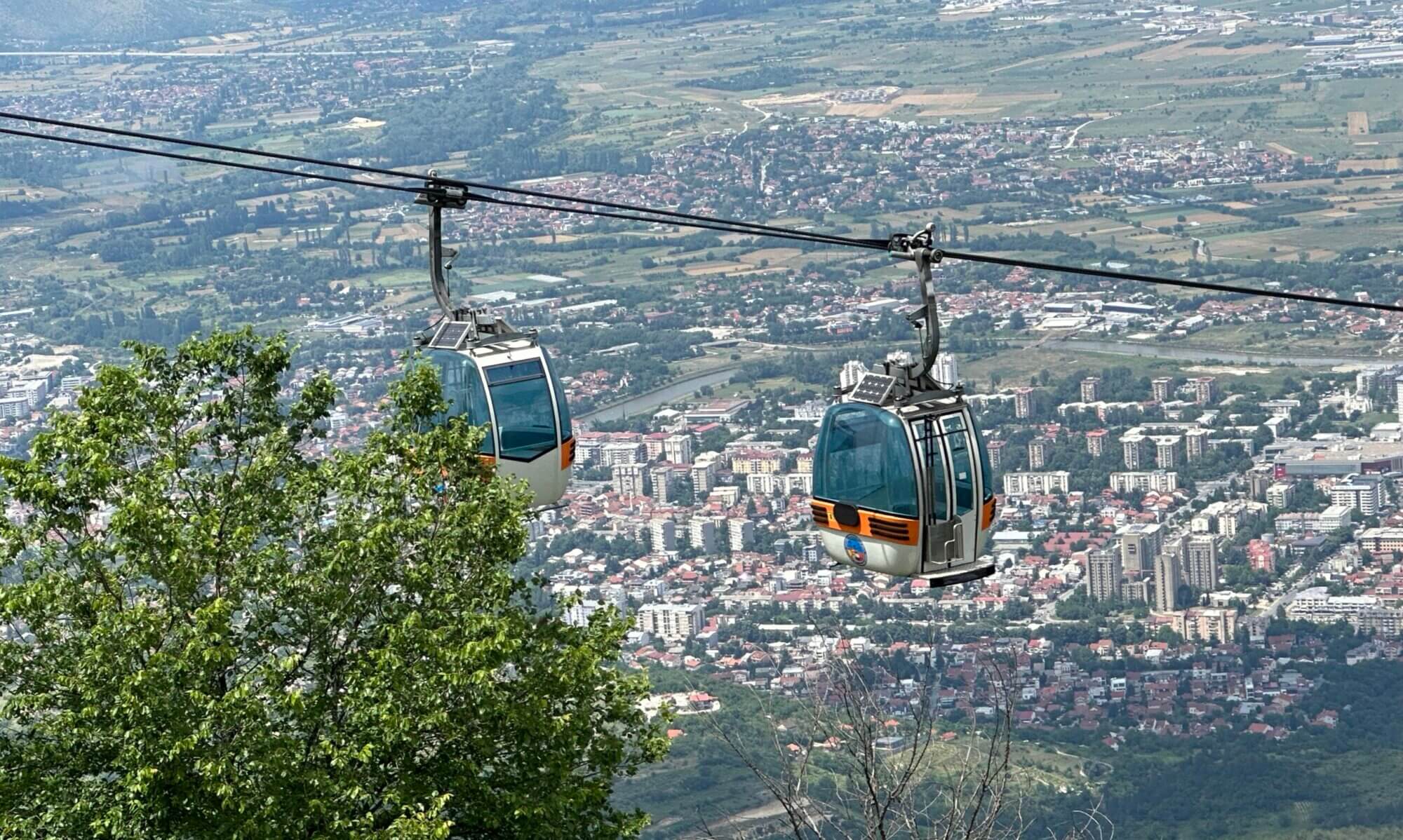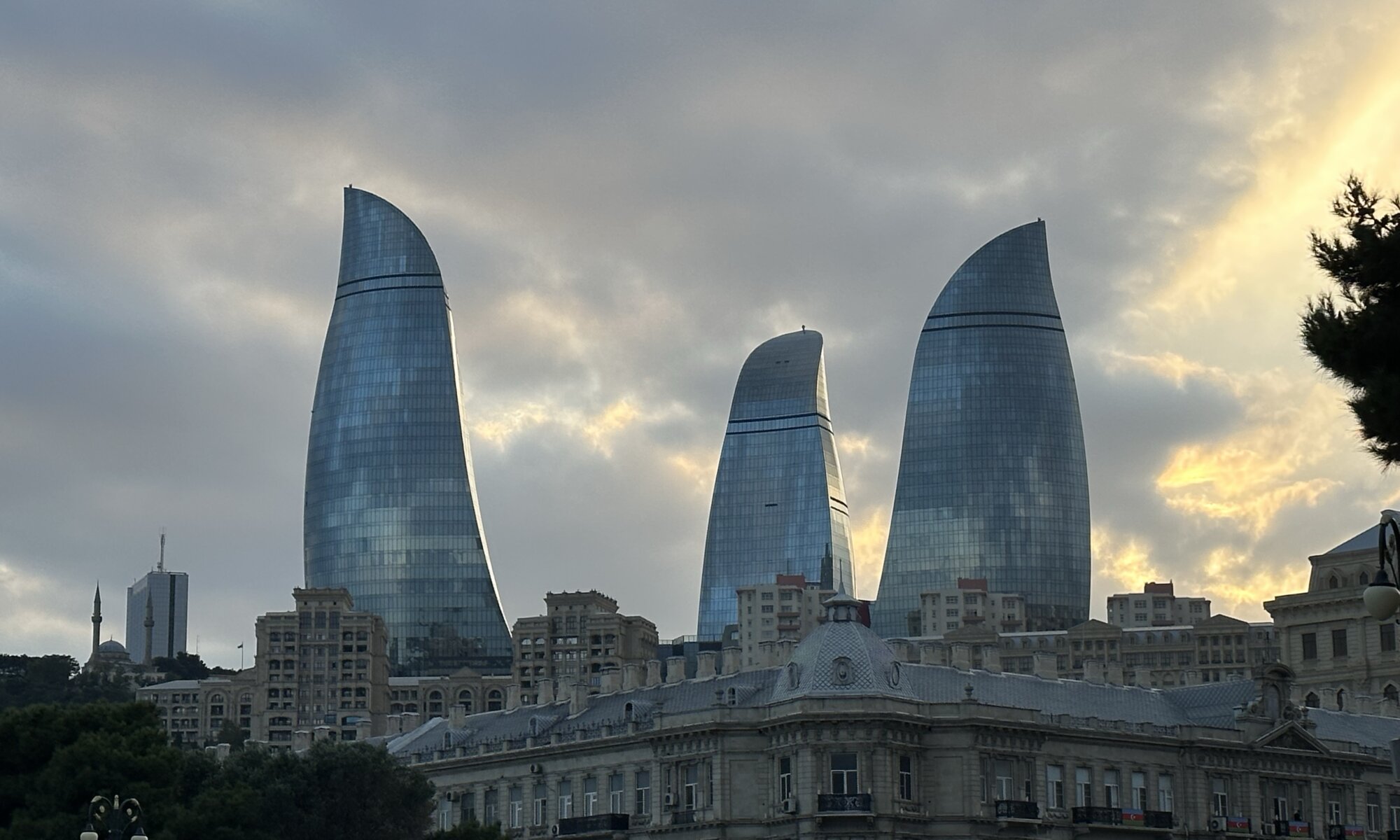Bakı is a city like no other. The capital city of Azerbaijan is shaped by the fossil resources available at the shore of the Caspian sea: oil and gas. They’re owned by the State Oil Company of Azerbaijan Republic (SOCAR) and create visible wealth and they are so widely available that they even remain unused and create continuously burning mountains and bubbling mud volcanoes. An endless number of horsehead pumps are moving around the city, three skyscrapers are shaped like flames and there is even a religion (Zoroastrianism) that worships the flame.
All that was formerly well known in Europa as Bakı attracted many westerners during the first oil boom. The Nobel family of Oslo (yes the ones donating the annual awards for science and the peace award) earned their money there. In World War II the Nazis wanted to get control over this vast source of energy. But during Soviet times Bakı was somehow forgotten and now tries to get back attention by things like sponsoring the annual Formula 1 race at the capital city. Discovering Bakı means visiting three cities in one: the ancient city center, the oil boom villas surrounding it and the modern skyscrapers of the post-Soviet area.
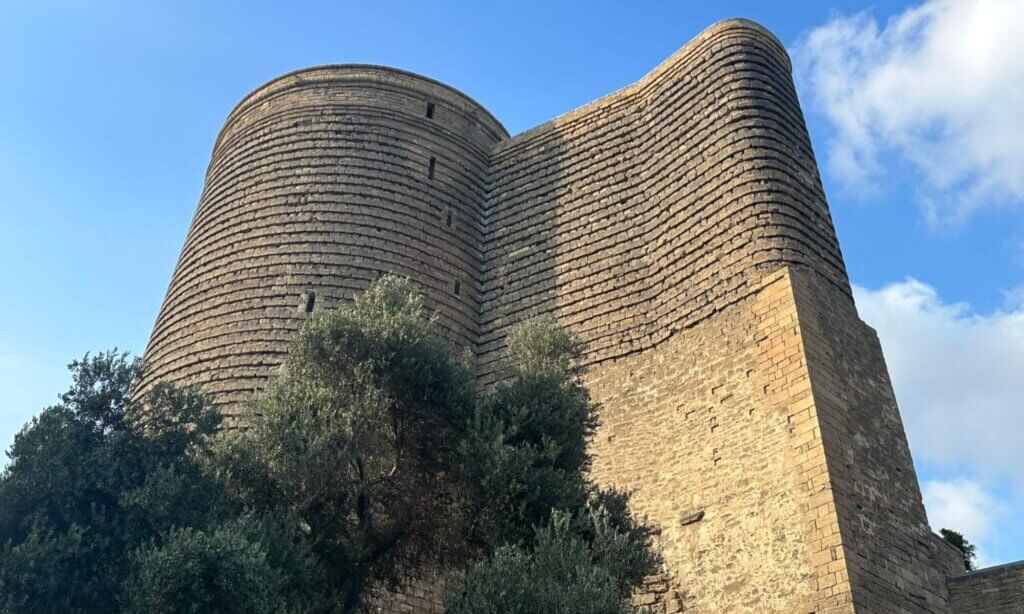
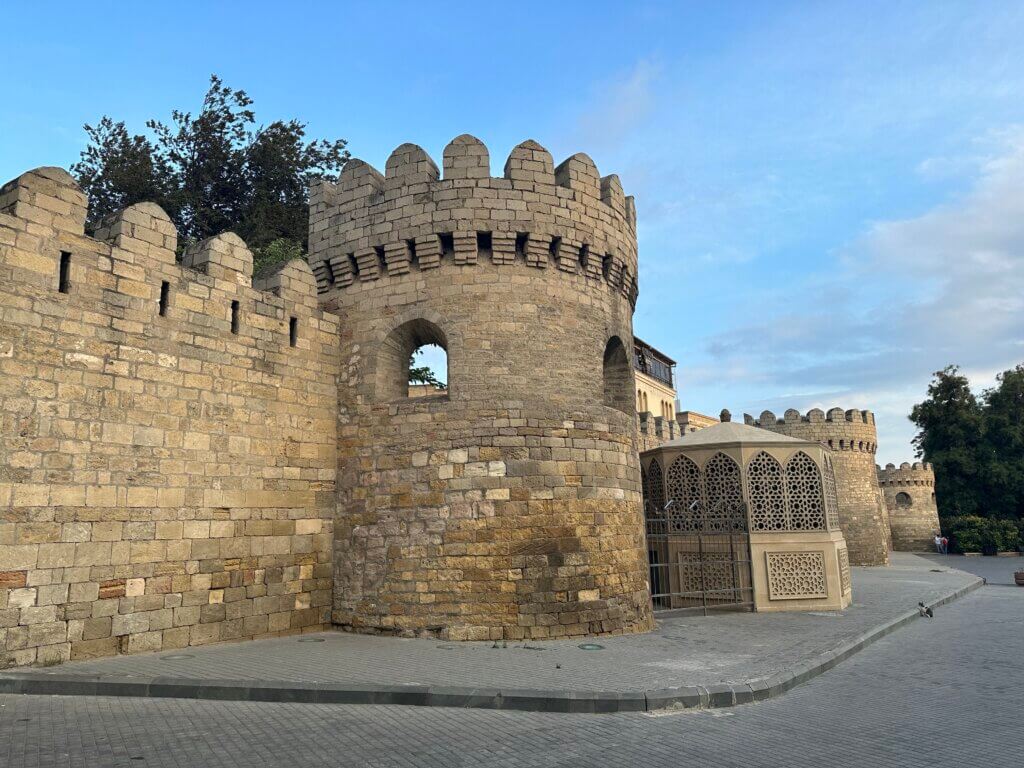
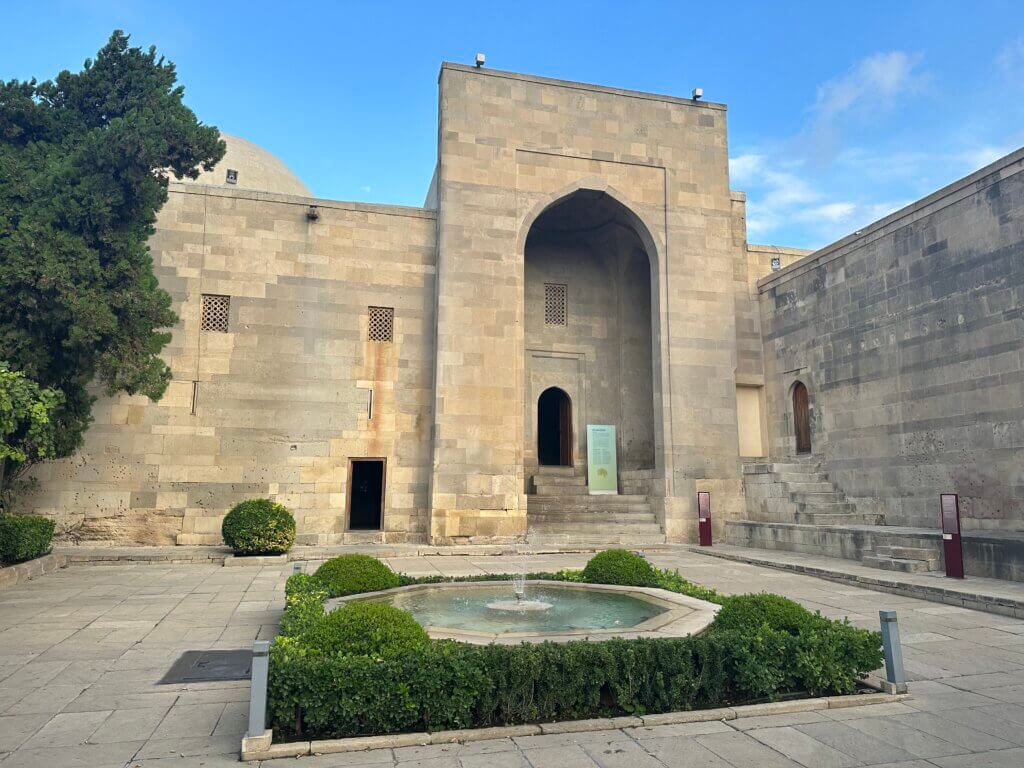
Authoritarian state and military conflicts
Travelling to Azerbaijan might feel a bit awkward because it is an authoritarian country with reduced freedom. Two people have ruled the country since its independence: a father and his son, both creating a massive personality cult. As a traveler this means you need a visa, you’re not allowed to take photos at airports and railway stations, the metro is full of posters explaining you the rules of Azeri life. I was a bit surprised that I needed to open my luggage in metro for inspection, never experienced this before. Everyone was queuing up like normal for x-ray scanning and checks with metal detectors. Maybe that was only because few weeks upfront to my arrival Azerbaijan used their military power to take control over Nagorny Karabach, an international not widely accepted state of Armenians living on Azerbaijan territory.
Facing these military actions all travelers had to ask themselves whether it is safe and acceptable to visit Azerbaijan. The roots of this conflict are far in the past: already in classical antiquity the region sometimes belonged to Armenia and sometimes to the predecessor of Azerbaijan. In 1988 the conflict escalated which led to the creation of the Republic of Artsakh inhabited by Armenians. Now, in 2023, Azerbaijan first isolated the region and then took it back by force. That also has to do with the superpowers of Transcaucasia: Armenia was in the past protected by Russia, Azerbaijan is backed by Turkey. While Russia is weakened by its invasion into Ukraine, Azerbaijan used its chance.
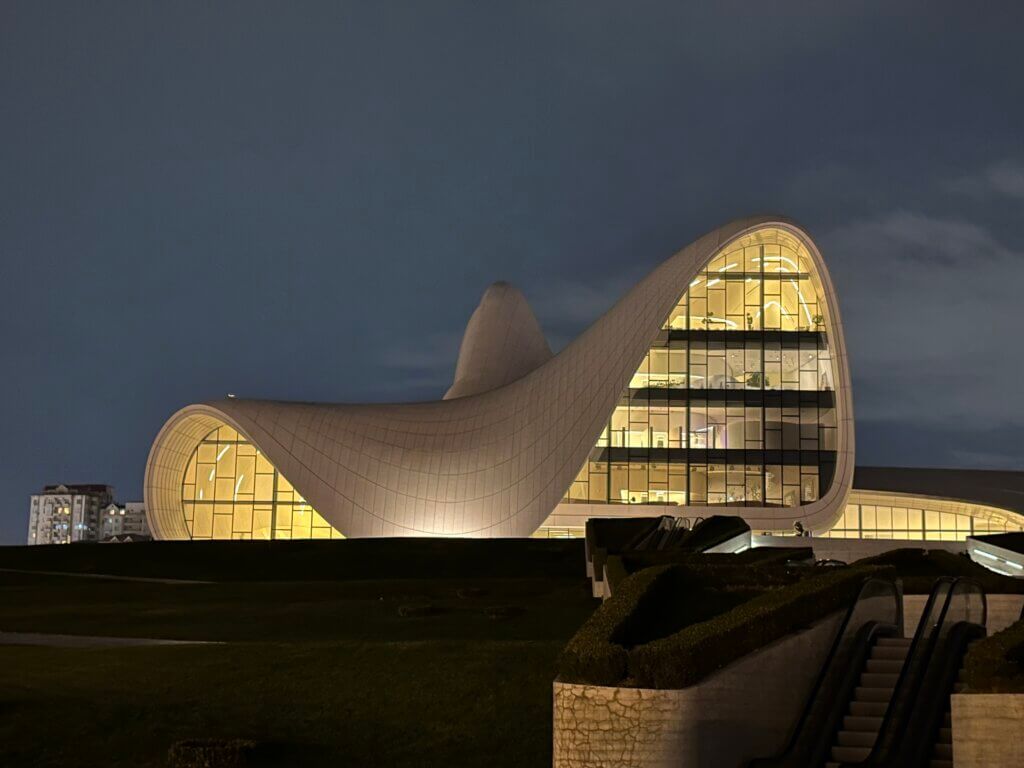
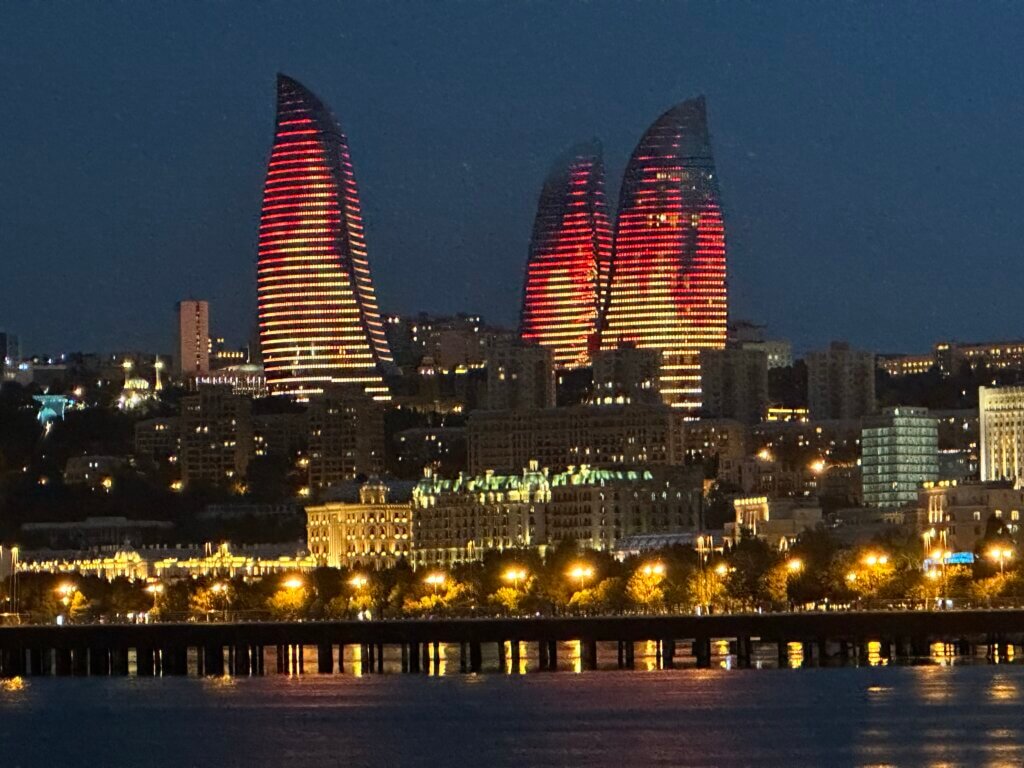
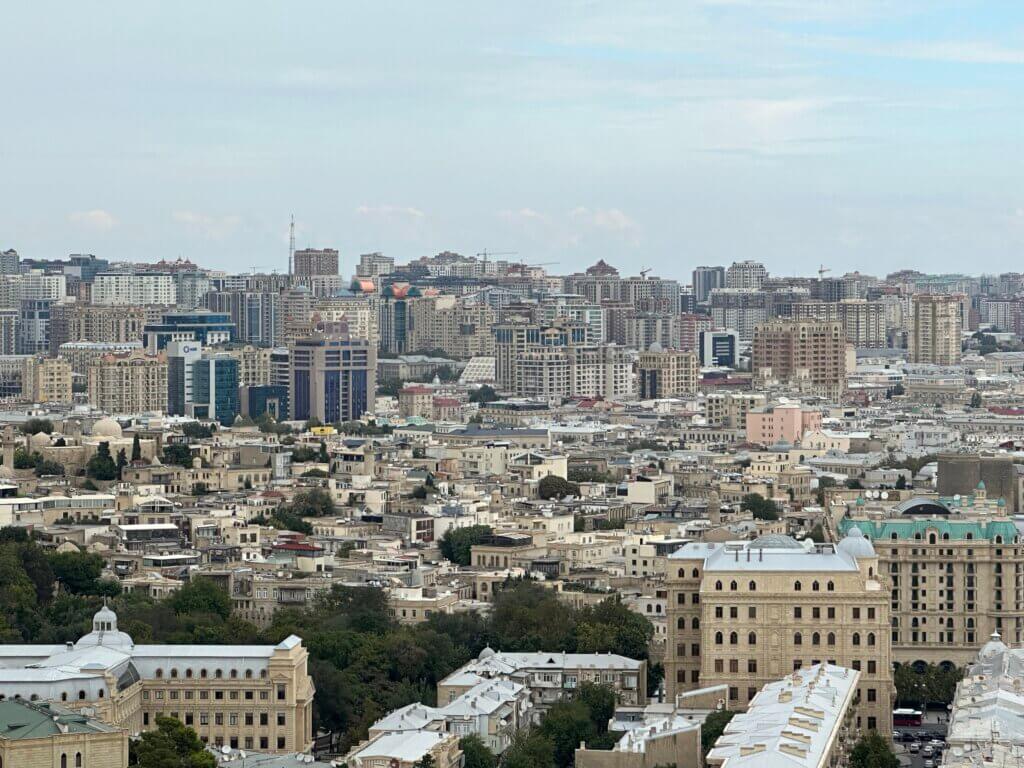
Turcic country with a long history
Azerbaijan is a country with 10 million inhabitants bordering Georgia, Armenia, Iran and Russia. It has its own language, 89 % of people identify with Islam and it is a country of medium income because of its fossil resources. It belongs to the six Turcic states (together with Kazakhstan, Kyrgyzstan, Uzbekistan, Turkey and Turkmenistan) and it was influenced in early days by the Persians and Seljuks, later by Russians. Azerbaijan became part of the Soviet Union and gained independence in 1991. Since then the Əliyev family is ruling: from 1993 to 2003 Heydər Əliyev was president, then he handed over powert to his son İlham Əliyev. Azerbaijan is an authoritarian state, opposition, minorities and women are oppressed. Free speech is limited, human rights are violated.
The capital city Bakı is probably named after the Persian word Bādkūba, which means ‘wind-pounded city’. It is located on the Abşeron peninsula at the Caspian sea and its history goes back to 8,000 years BCE: natural oil springs attracted humans. In the 12th century CE it became the capital city of the Shirvanshahs which shaped todays city center. Between 1873 and 1917 the oil boom made Bakı grow faster than any other European capital and western european architects created mansions for the rich oil producers in the city. The Russian revolution led to a nationalization of the fossil ressources and an expropriation on large scale.
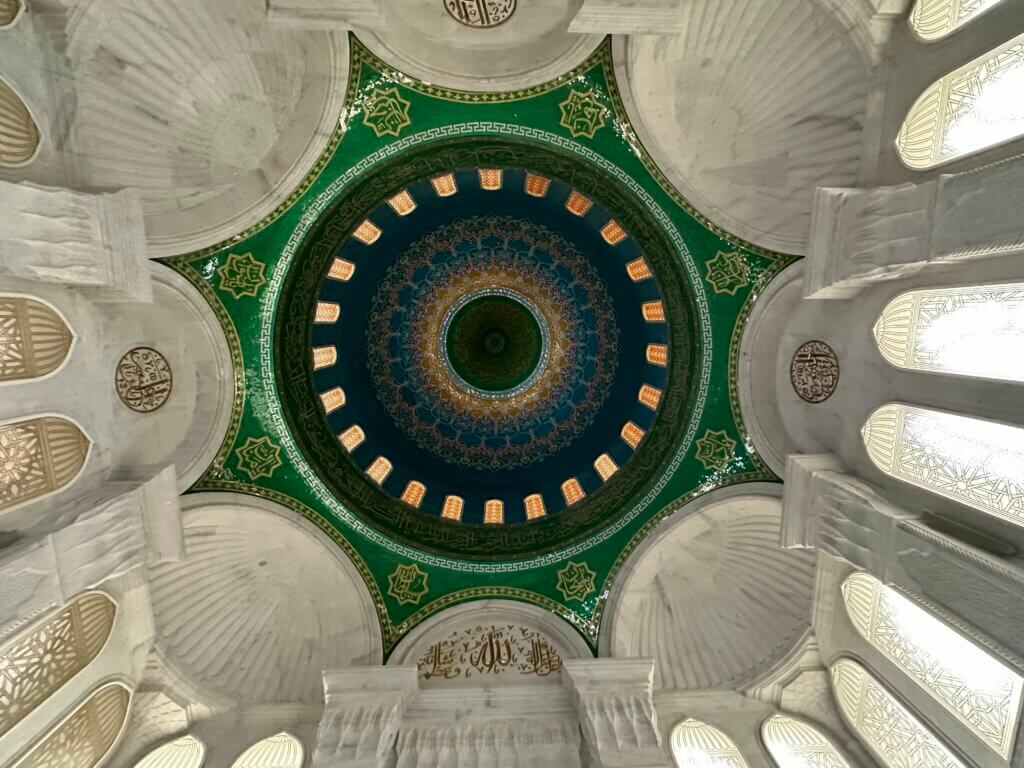
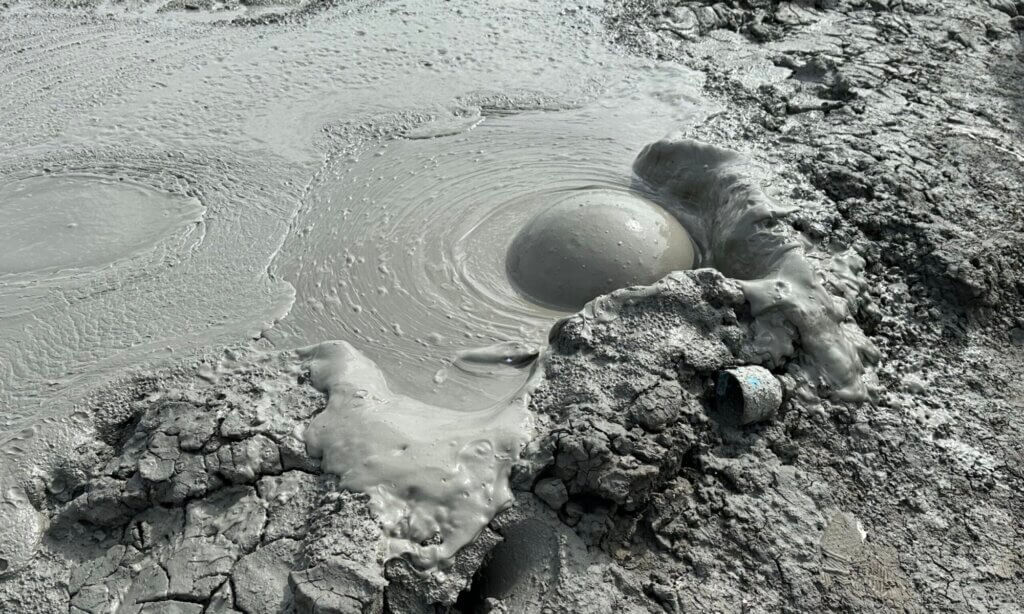
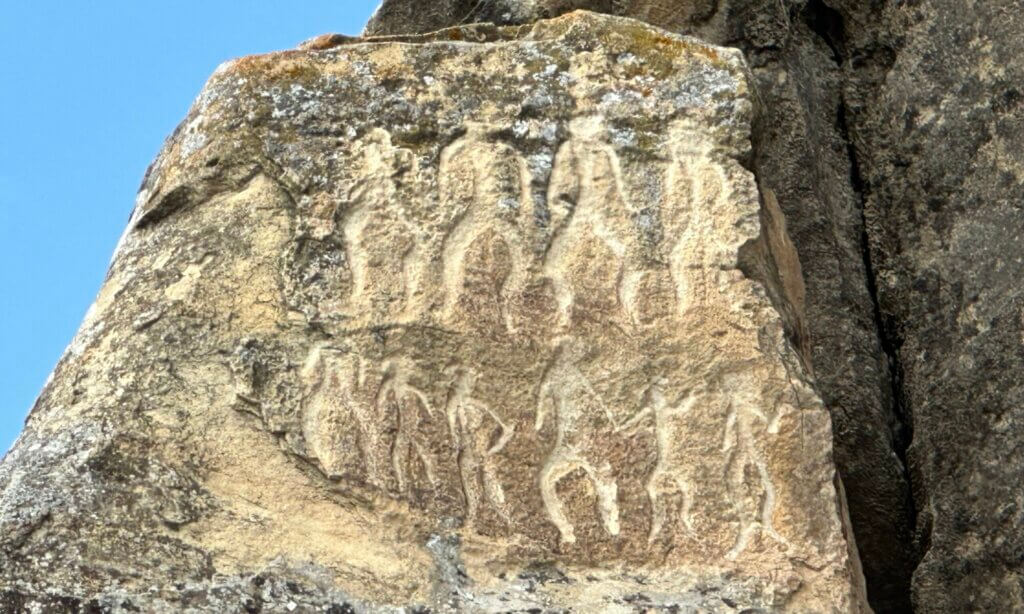
Much to see in and around Bakı
The first place most people at Bakı is the ancient city center İçəri Şəhər with the wonderful palace Şirvanşahlar and the maidens tower Qız Qalası. Modern icons of the city are the Heydər Əliyev Mərkəzi designed by architect Zaha Hadid and the Flame towers which become large illuminated flames at night. But you should also enjoy the Caspian sea on a walk on boulevard along its shore; there is even a little copy of Venezia. From Dağüstü park on top of a hill close to the old city center you can enjoy good views on Bakı.
The city also contains two wonderful art museums: the large National art museum and the surprisingly good Museum of Modern Art a little bit aside the center. And of course you need to do a visit to the carpet museum which I liked more for its special architecture than its exhibit. Visiting Bakı also requires to leave the city and explore nature around and the suburbs. I enjoyed taking a tour to the Bibi Heybat mosque and Qobustan with its mud volcanoes and petroglyphs. On the other hand, the burning mountain Yanar Dağ and the Atəşgah fire temple are also a must-see.
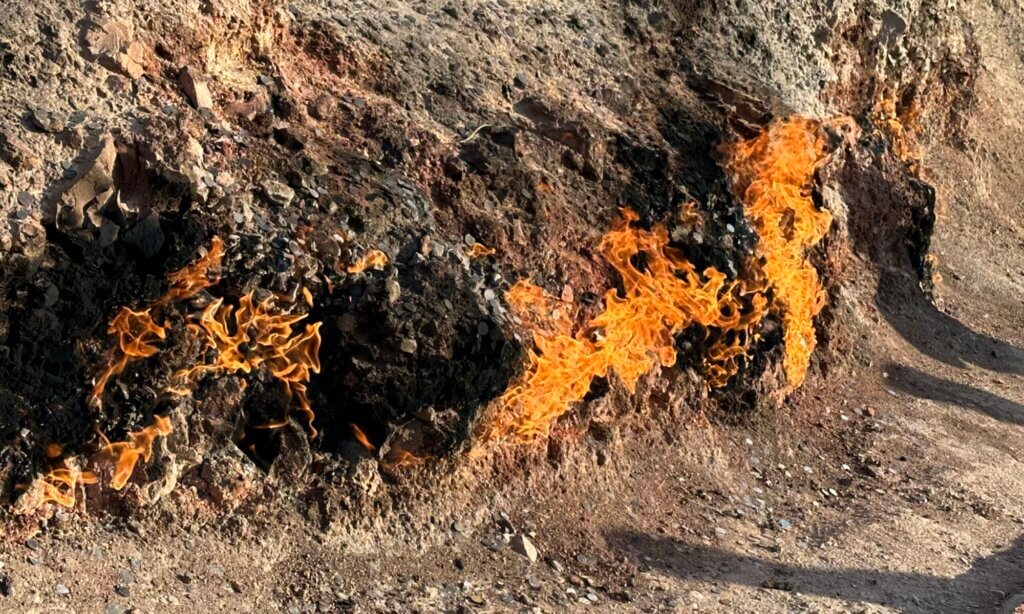
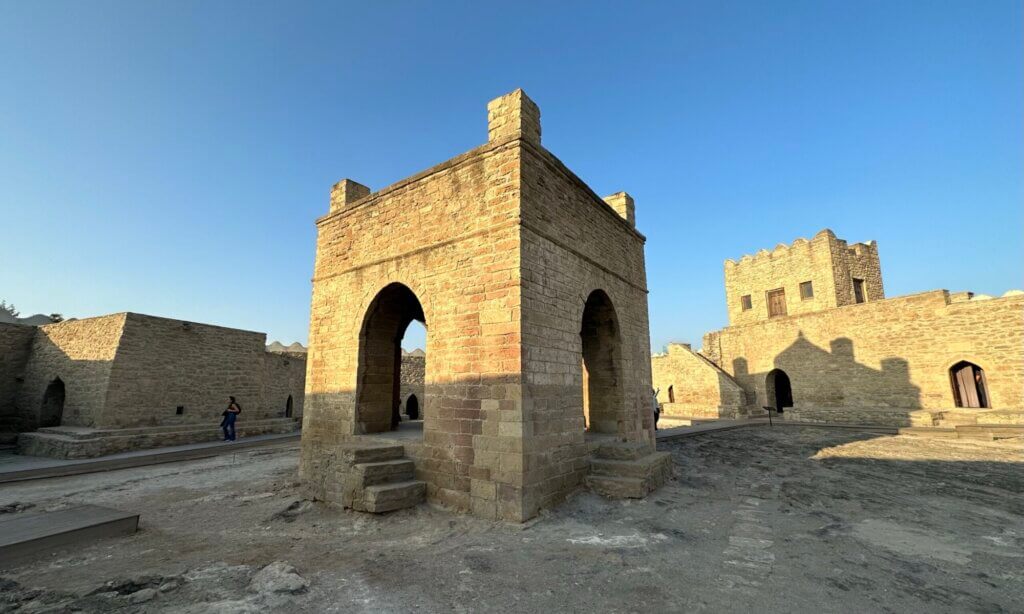
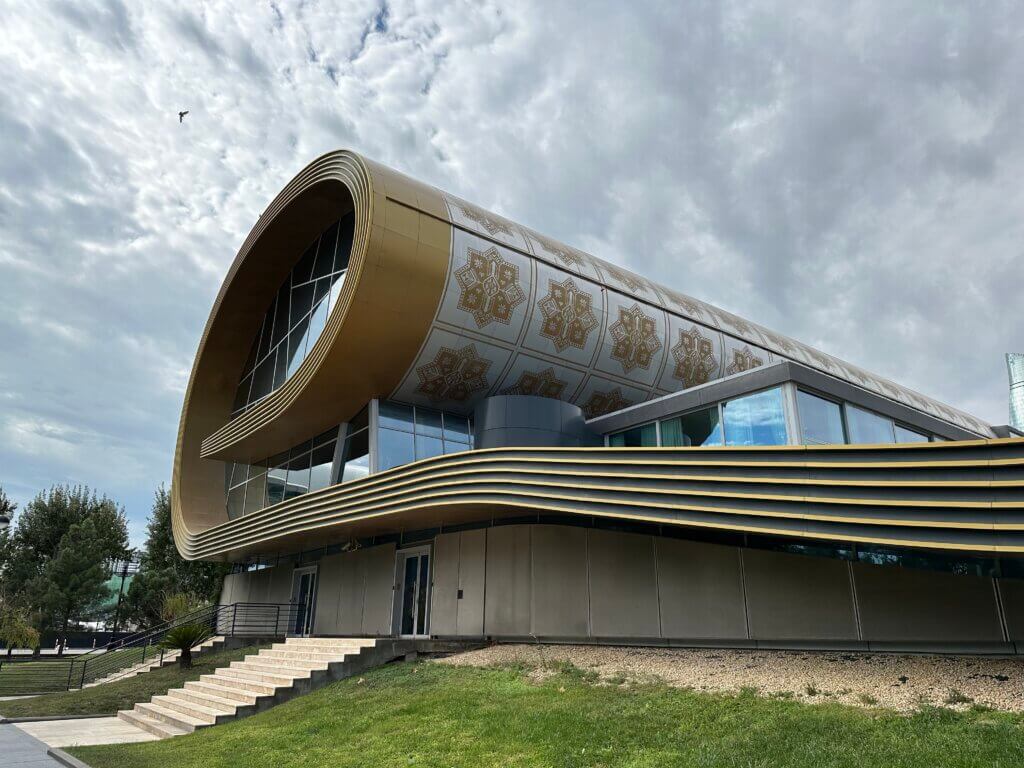
The practical side
For visiting Azerbaijan I needed a 30 day visa that can be easily ordered via the Internet – one of the rare moments when the holder of a German passport needs to get one upfront. Make sure that your passport doesn’t have entry/exit notes of Armenia; you will not be allowed to enter if there are signs that you’ve been in that country. Public transport is easy if you get a BakıKart at the airport where you can also get some Manatı from the ATMs (but credit cards are also widely accepted). If you want to connect your smartphone to the local network: Azercell shops offer pre-paid SIM cards with cheap packages (six GB data volume = 30 Manatı).
Arriving at Azerbaijan felt strange in the first hours, the authoritarian state can be quite threatening for first-time visitors. But after short time I came into contact with locals, felt safe and welcomed. Experiencing this very different city and country was a pleasure and I wouldn’t have wanted to miss it.
Bakı / Baku
Azərbaycan / Azerbaijan
Loading map...

